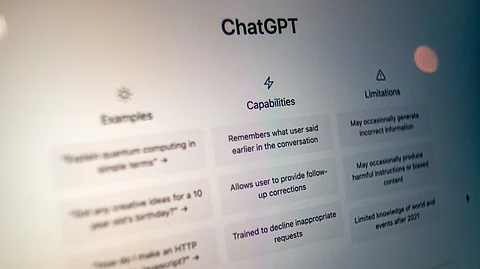The condition can be triggered by intense physical exertion, dehydration, trauma, infections, or certain medications. Common symptoms include:
Muscle pain: Disproportionate soreness, often severe.
Weakness or stiffness: Limited mobility or strength.
Swelling: Noticeable swelling in the limbs.
Dark urine: Cola-colored or red urine, or reduced output.
Fatigue: Extreme tiredness and weakness.
Early symptoms can mimic other issues like dehydration or heat cramps, making diagnosis challenging without proper testing. Immediate medical attention is crucial, as treatment often involves rehydration and, in severe cases, dialysis.
Reddit Users React: AI’s Growing Role in Healthcare
The man’s story resonated with many Reddit users, some of whom shared their own experiences of using ChatGPT for health-related concerns. One commenter revealed how the chatbot saved their cat's life. “My vet thought my cat had blood clots in its back legs and wanted to put it down. ChatGPT suggested checking for high blood pressure, and the AI turned out to be correct,” they wrote.
Another user highlighted recent studies comparing ChatGPT’s diagnostic capabilities to those of human doctors. “It’s not only accurate but also more empathetic in the way it communicates with patients,” they noted.
Others emphasized the dangers of Rhabdomyolysis, with one commenter sharing their experience: “Rhabdo is no joke. I had it after a workout and heavy gardening, and it took days to realize how sick I was. Kidney failure and death are real risks.”
A Word of Caution:
While stories like this showcase the potential of AI in healthcare, experts stress that these tools should not replace professional medical advice. ChatGPT and similar technologies can provide valuable insights and aid decision-making but should always be used in conjunction with consultation from qualified healthcare providers.
(Input from various sources)
(Rehash/Sai Sindhuja K/MSM)


